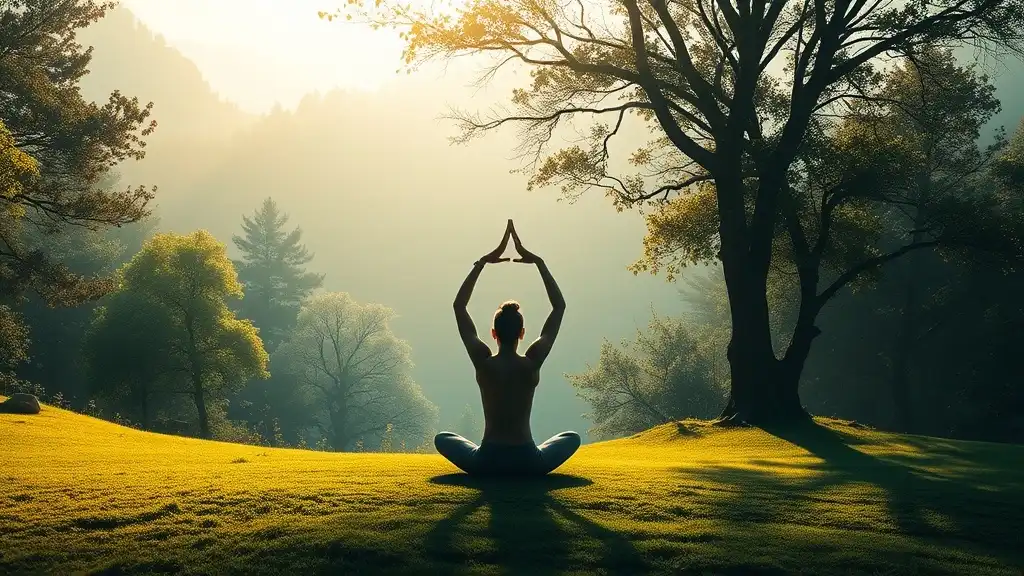Yoga is more than just a physical practice; it is a spiritual journey that connects the body, mind, and soul. Understanding the spiritual meanings behind various yoga poses enriches this practice and empowers individuals to deepen their experience. Each pose, rooted in ancient traditions, serves as a gateway to self-discovery and personal transformation.
Understanding Yoga and Its Spiritual Roots
The Historical Context of Yoga
Yoga's origins can be traced back thousands of years to ancient India, where it was practiced as a means of spiritual awakening and enlightenment. Initially, yoga was not merely about physical postures; it encompassed a holistic approach that included moral and ethical disciplines, meditation, and self-inquiry. As yoga traveled through various cultures, its philosophies evolved, yet its core spiritual essence remained intact.
The Intersection of Spirituality and Physicality
Each yoga pose, or asana, embodies a particular energy and intention. Practicing these postures allows individuals to harness the mind-body connection, a vital aspect of spiritual growth. By engaging in the physical form, practitioners can access deeper levels of awareness, facilitating a journey toward inner peace and self-realization.

Overview of Key Yoga Poses and Their Spiritual Meanings
Mountain Pose (Tadasana)
Mountain Pose, or Tadasana, is the foundation of all standing poses. As you stand tall, feet grounded, you embody a sense of stability and presence. Spiritually, this pose symbolizes the importance of being rooted in your truth. It reminds practitioners to embrace their individuality and stay centered, even amidst life's challenges.
Tree Pose (Vrksasana)
Tree Pose invites practitioners to find balance by standing on one leg while the opposite foot rests against the inner thigh or calf. It represents personal growth and a connection to nature. Spiritually, Tree Pose encourages us to cultivate flexibility and adaptability, reminding us that just like trees, we can withstand storms while staying rooted in our beliefs.
Warrior Pose (Virabhadrasana)
Warrior Pose encompasses strength and determination. When you embody this pose, you channel feelings of courage and empowerment. It symbolizes the warrior within, who bravely faces challenges. This pose encourages the exploration of personal boundaries and helps practitioners recognize their own strength in overcoming obstacles in life.
Child's Pose (Balasana)
Child’s Pose is a position of surrender and comfort, inviting practitioners to turn inward. With the forehead resting on the mat and arms extended, it fosters a deep sense of calmness and provides a space for renewal. Spiritually, this pose symbolizes releasing control and embracing vulnerability, providing a sanctuary to reconnect with the self.
Bridge Pose (Setu Bandhasana)
In Bridge Pose, the heart opens as the chest lifts, creating a space for connection and love. This posture represents emotional growth and a willingness to explore our higher self. Spiritually, Bridge Pose encourages practitioners to open themselves to new experiences, cultivating a deeper connection with others and the universe.
Cobra Pose (Bhujangasana)
Cobra Pose involves a gentle arching of the back, which stimulates the spine and opens the heart. This pose embodies the idea of awakening and transformation. Spiritually, it encourages practitioners to rise above their limitations and embrace a new perspective on life—one that fosters positivity and empowerment.

The Importance of Breath in Yoga Practice
Pranayama: Breath as Life Force
Breath, or pranayama, is often referred to as the life force that energizes the body. Practicing breath control enhances spiritual experiences during yoga. By integrating pranayama techniques, practitioners can clear mental clutter, focus their intentions, and elevate their consciousness. The act of breathing mindfully infuses each pose with a sense of purpose and connection to the divine.
Synchronizing Breath with Movement
The synchronization of breath with movement enhances the overall yoga experience. As you inhale and exhale deeply, you cultivate mindfulness and presence. This practice encourages a spiritual awakening, fostering awareness of the moment. By being fully present in each pose and breath, practitioners deepen their connection to themselves and the universe.

Integrating Spirituality into Your Daily Yoga Practice
Setting Intentions for Your Practice
Setting intentions at the beginning of your practice is a powerful way to infuse your yoga journey with spirituality. Reflect on what you wish to cultivate or release during your practice. By aligning your intentions with the spiritual meanings behind the poses, you empower your practice, turning it into a transformative and personalized experience.
Creating a Sacred Space for Yoga
A sacred space enhances the spiritual atmosphere of your practice. Whether at home or in a studio, create an environment that invites serenity and introspection. Utilize candles, scents, or crystals to elevate the space's energy. Incorporating mindfulness and meditation into your routine further enhances spiritual connection, allowing for a deeper exploration of self.

Conclusion
Exploring the spiritual meanings behind yoga poses offers a transformative lens through which to view your practice. Each posture serves as a reminder of your innate wisdom and strength, guiding you toward self-discovery and enlightenment. As you delve deeper into your yoga journey, embrace the teachings of each pose, allowing them to inspire and empower your everyday life. With intention and mindfulness, your yoga practice can become a sacred path toward spiritual awakening.



















